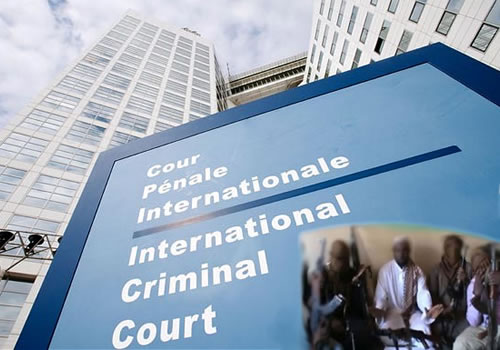The Boko Haram terrorist group now has more than the Nigerian government to battle, as they have now been indicted by the International Criminal Court (ICC) in The Hague for crimes against humanity in its widespread and systematic murder and persecution of civilians.
In a report entitled “Situation in Nigeria,” the ICC said there was reasonably basis that since July 2009, the group, which aimed to spread radical Islam in northern Nigeria, had committed crime against humanity.
The report highlighted various attacks on civilian population by the sect, while it described them as systematic and widespread, spanning over the entire North Eastern region, as well as Plateau, Kogi, Kano, Bauchi and Kaduna states.
According to the report, churches were singled out for constant attacks, concluding that the planning of the attacks showed they were products of organisational policy, a reason that qualified them as crimes against humanity.
On the violence in the Niger Delta and confrontation between Movement for the Emancipation of the Niger Delta (MEND) and security forces, the report said “it does not appear to be a reasonable basis to believe that the alleged crimes committed in the Delta region could constitute war crimes.”
It, however, said the situation might be revisited in the light of fresh facts and evidence.
On alleged crimes committed by soldiers fighting the Boko Haram, the report, which acknowledged that serious human rights violations may have been committed, however, concluded that they did not constitute crime against humanity.
“Information available as of December 2012 does not provide a reasonable basis to believe that the alleged crimes were committed pursuant to or in furtherance of a state or organisational policy to attack the civilian population,” it said.
It also said that the next step after the indictment was to assess whether Nigerian government was working on “conducting genuine proceedings in relation to those who appear to bear the greatest responsibility for such crimes and the gravity of such crimes.”
However, the ICC investigation may be counter-productive to the goal of the Federal Government, which has long constituted a committee which is negotiating peace and amnesty with the sect.
The ICC has the power to prosecute cases that national courts of signatory nations were unwilling or unable to investigate or prosecute.
Nigeria ratified the ICC statute on September 27, 2001, giving the court jurisdiction to over crimes committed within Nigeria from July 1, 2002.
Already, a group, the Christian Association of Nigerian-Americans (CANAN) has welcomed the outcome of the ICC preliminary reports determining clearly that Boko Haram should be tried for committing crimes against humanity and persecution against Nigerian Christians and others.
The office of the prosecutor of ICC, on Monday, reported that there was reason to believe that crimes against humanity had been committed in Nigeria by the militant group known as Boko Haram.
A report issued by the office found that the group had, since July 2009, “launched a widespread and systematic attack that has resulted in the killing of more than 1,200 Christian and Muslims civilians in different locations throughout Nigeria.”
A statement from CANAN secretariat in New York, on Tuesday, said it was glad that there was a legitimate international legal entity which would ensure that justice was done in the matter.
“We are encouraged that at a time when a minister of the Nigerian government has been making unsubstantiated claims about Boko Haram’s cease-fire, aimed at forcing an amnesty deal for perpetrators of grave crimes against humanity, the ICC has risen to the occasion in the interest of justice,” it said.
CANAN noted that it would continue to advocate against terrorism in Nigeria, in alliance with other global agencies and in collaboration with the ICC.
“We shall continue to follow and support the ICC process all the way to its logical conclusion,” the statement added.
It said the prosecutor was still assessing three other phases of the situation in Nigeria, adding that once completed, would decide if a situation met the legal criteria established by the Rome Statute – the Court’s founding treaty – to warrant an investigation by ICC.



Leave a Reply